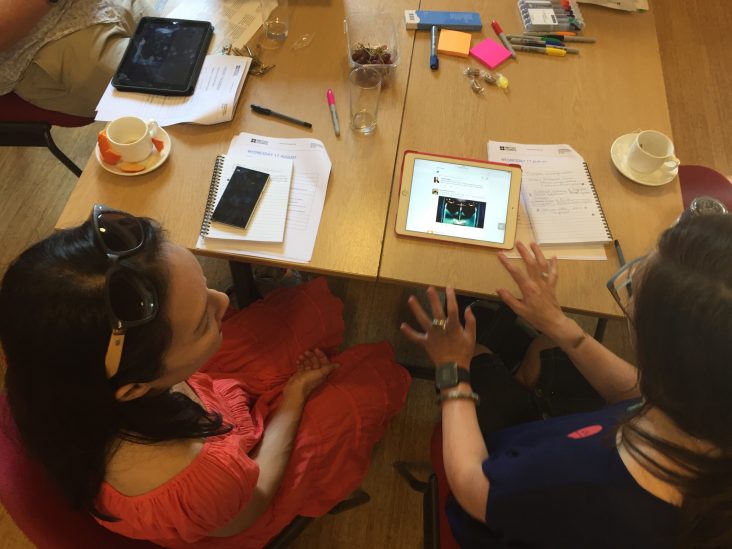Exploring Happy Museum in the digital world

Since 2012 Happy Museum has worked to re-imagine the purpose of museums as stewards of people, place and planet, supporting wellbeing and building resilience in the face of global challenges. The project is informed by six key principles which underpin the work of growing community of practice.
To date this activity has been predominantly in the analog/non-digital world. Our dispersed team makes extensive use of digital platforms and we communicate widely via social media but with the notable exception of a digital commission at Gwynned (now Storiel) museum, our community of practice has largely generated real world rather than digital activity.
This is why Happy Museum is so excited to be partnering with our Affiliate, Culture24 on their new action research project Understanding Digital Social Purpose in Museums. We’re looking forward to testing out our thinking and principles in the digital sphere!
There is growing awareness of the impacts of digital activity on our wellbeing including the negative effects of extensive time spent online on physical and mental health. Meanwhile social media appears to exacerbate polarisation, creating echo chambers which limit our engagement and understanding of others. We are keen to consider how museum digital activity might recognise and counter these challenges and help museums to Create the Conditions for Wellbeing. Can we identify the sweet spot where digital activity builds wellbeing, engaging us in the 5 Ways to Wellbeing, encouraging us to learn, be active, keep learning, take notice and give? Could it help us build connection, bridging the empathy gap and encourage people into a culture of encounter? What might we learn (good and bad!) from digital platforms that move people from digital to real world interaction such as Tinder, aribnb and meetup?
Museums have huge potential to engage their communities in civic life. Most museums run volunteering and co-producing activity that supports the empowerment of individuals to Be an Active Citizen. A plethora of online campaigning organisations such as 350.org, 38 Degrees, Action for Happiness and Change.org engage in digital activisim – can museums help translate this online energy into real-world action?
Access to free, open-source online learning lies behind the viral growth of the global Transition Network. A grass-roots movement responding to climate change and supporting local wellbeing, it now has hundreds of groups in communities worldwide. Meanwhlie Coursera is one of a multitude of free online learning platforms that are revolutionising access to learning. Museums already have a culture of shared learning which could be enhanced by digital platforms. For example Happy Museum is planning an International Affiliate Scheme using digital communications to Learn together for Resilience connecting a growing number of interested museums in countries worldwide.
There is much to learn from the digital sphere to support museums to Pursue Mutual Relationships. Digital platforms are being developed to enable individuals and communities to share resources (Freecycle), transport (Zipcar, Lyft), food (Olio) and much more. Museum Freecycle was set up to enable UK museums to exchange exhibition build items and materials for free in order to reduce their environmental footprint. Where else could digital platforms support museum partnerships for mutual benefit?
As a speaker at the recent MA conference noted, ‘Data’ is our most abundant resource, ‘Attention’ is the hardest to get. How can digital help us mine the former and engage the latter in our communities and stakeholders? At the heart of Happy Museum thinking is the need to identify and Measure what Matters. We have developed a free online app, the LIFE survey which measures wellbeing in terms of Learning, Interaction, Feelings and care for the Environment and surroundings, enabling museums to evidence the impact of their service or project robustly. We look forward to exploring other ways in which digital can support us to understand and communicate the impact of our work.
Finally, there is no question that our future will be digital as well as anolog. How can we ensure our use of digital supports our Wellbeing, helps us learn together, connect, and respect each other, share practice and resources and help understand and communicate our impact. How can it support us to live and work lightly on our beautiful finite planet? Online communication in all areas of museum activity and across institutions and borders can support a low-carbon but global exchange of learning and experience to enable us to Value the Environment and be Stewards of the Future not just the Past.
For full details of the project, please download this Call for Registration.
To register your interest, please complete this short form by Friday 8th December 2017. Meanwhile, if you want to discuss the project contact Sejul Malde on sejul@culture24.org.uk.

